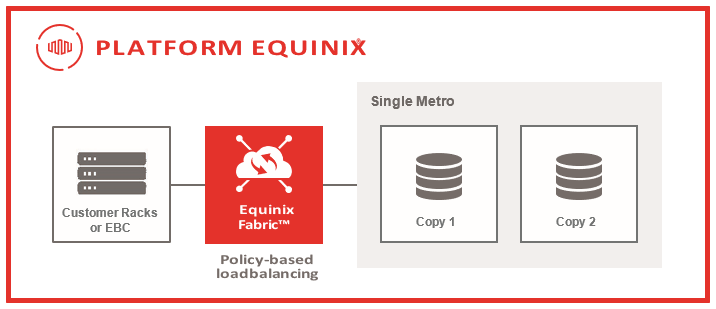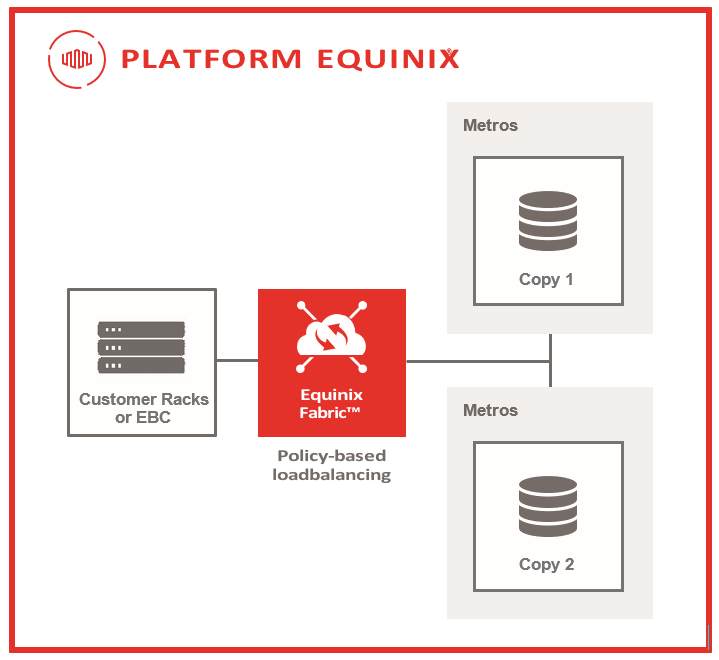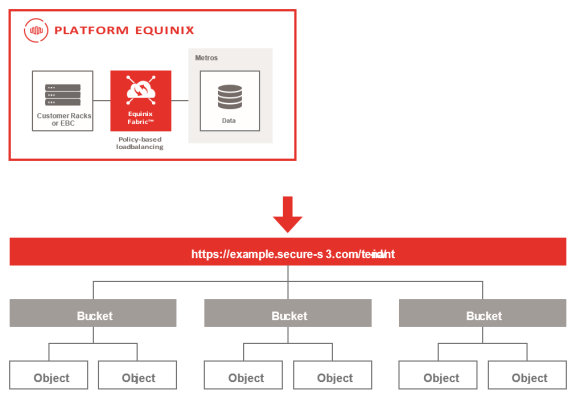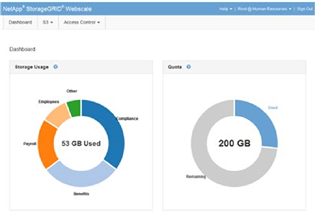Object storage is a method that is particularly suitable for storing large quantities of unstructured data.
Availability of the data is determined by an applied policy. Through a policy, you determine how many copies of the data are stored, and in which locations. You can configure the data yourself through the self-service portal. Both the portal as well as the data can be accessed via an API.
Use cases for Object storage are:
-
Storage of unstructured data for applications
-
Data for data analytics
-
Offloading based on Netapp Fabric pool
-
Storage of Archive or Back-up data
Policies
By means of policies, a certain availability can be selected in the self-service portal. Managed Object storage is available in the following policies:
-
Standard – This is the default setting for Object storage performance. With this policy, the data is stored twice within the data center.

-
Site protected – With Site Protected, data is stored twice at two geographically separate EQDP sites. The data is protected against failure at one site. Data traffic is automatically routed to the second data center without any loss of service or data.

-
Dev-Test – This offers single storage of the data in the chosen data center. It is suitable for reproducible data such as dev/test data.

Note: In case of a disruption, the data may not be reproducible.
Functionalities
Inmutability/Worm
A frequently requested feature for archiving and/or compliance purposes is that data cannot be modified after it has been stored. Object storage can be configured to have WORM (Write Once Read Many) properties. This function is available via Self-Service.
Versioning
This makes it possible to apply Information Life Cycle Management. Versioning is placed at bucket level and is available via Self Service.
Access
Object storage can be accessed via the Internet. The available bandwidth is 1 Gbps, and a fair use policy applies to this. If required, higher bandwidths are available for quantities over 50 TB.
In addition to security through username and password, and/or token-based authentication, you can choose to increase your data security by putting your IP addresses on the allow list. This will allow only the specified IP addresses to access the Object Storage API and the self-service portal.
If you want a direct connection to the object storage, you can contact your account management.
Object storage API
Object Storage supports the Simple Storage Service (S3) API, implemented as a set of Representational State Transfer (REST) web services. The API enables you to connect service-oriented applications developed for S3 web services to local object storage that uses the Object. This requires minimal changes to the current use of S3 REST API calls by a client application. The S3 API is fully compatible with the AWS S3 API.
Self-service portal
You can manage your environment through the self-service portal. Use the portal to manage:
-
Accounts
-
Buckets
-
Policies
-
Identity access federation
-
Access Keys
-
System status

How does it work?
Together with the user, an intake is done, in which the bandwidth and IP addresses are tuned. Then the connection, portal and storage are configured.
Once this is achieved, the user receives information about the login details for the portal, and the tuned variables. Using these details, the user can configure the object storage by creating his own buckets, and linking them to the different profiles.
Purchase Units
With Object storage, you contract the amount in GB, rounded off in units of 250 GB. Here, you have to take into account which policies will be applied from those available.
To give you more flexibility, the volume is created with the size of the contracted quantity + 50%. You can expand this space during the contract period in blocks of 250 GB.
Shrinkage is possible after the first year with a maximum of 25% of the contracted quantity, with a maximum of 1000 GB per year.
Object storage is stored once or twice according to the policies. Data that is stored twice is counted twice for billing purposes. In cases with multiple sites, the connection costs between the data centers are part of the storage price.
Object storage performance is charged as follows:
-
Object Storage Performance in GB
-
Overage Object Storage Performance in GB
The contracted quantity is charged per month in advance. Consumption in excess of the contracted quantity is invoiced monthly in arrears as Overage Object Storage in GB.
Relations and dependencies
Object Storage offers a self-service functionality for its related services and dependencies via its portal and APIs.

